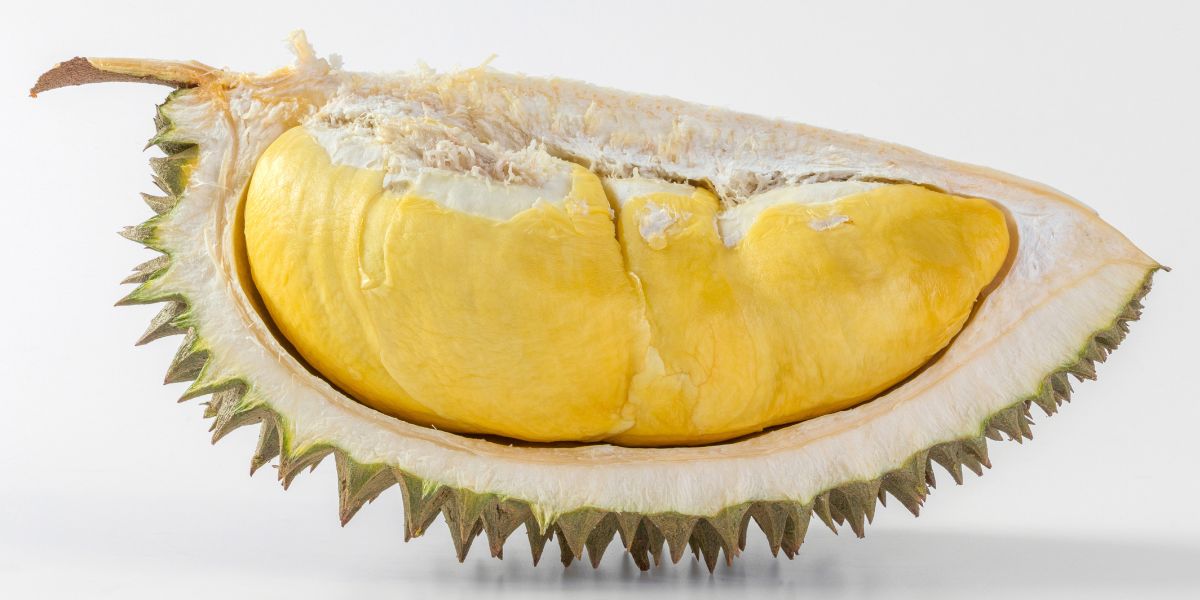Kapanlagi.com - Durian, the "King of Fruits," is indeed famous for its unique taste and enticing aroma. However, behind its deliciousness, durian is often shrouded in frightening myths, especially related to health. Many believe that this fruit can increase cholesterol and trigger high blood pressure. But is that really the case?
Many people steer clear of durian due to concerns about its negative effects on heart health and blood pressure. However, experts say otherwise! If consumed in moderation, durian actually will not cause spikes in bad cholesterol (LDL) or hypertension. In fact, several studies show that durian is rich in nutrients that are beneficial for our bodies.
Let’s delve deeper into how durian interacts with cholesterol and blood pressure. Get ready to discover interesting facts about this fruit! Here’s the complete explanation.
1. Durian Does Not Contain Cholesterol, Here’s the Explanation
Many people believe that durian is a fruit that contains high cholesterol, but this assumption is incorrect! Durian, as a fruit that grows on trees, does not contain cholesterol because cholesterol is only found in animal products such as meat and milk.
In fact, durian is rich in healthier unsaturated fats that can help lower cholesterol levels in the body. However, for those who already have high cholesterol levels, the consumption of durian should still be monitored.
This is because durian has a relatively high calorie content, so if eaten in excess, it can risk increasing body weight and lead to heart health issues.
2. How Does Durian Affect Blood Pressure?
Many people assume that durian can directly cause a spike in blood pressure, but the reality is much more complicated than just a myth. Durian is actually rich in potassium, a mineral that helps balance the effects of sodium in the body and has the potential to lower blood pressure. In other words, durian can be a friend to our heart health. However, don’t get complacent!
Durian also contains high sugar and calorie content, which, if consumed in excess, can disrupt metabolism and increase the risk of obesity, which in turn can negatively impact blood pressure. So, enjoy durian wisely so that its benefits can be felt without lurking risks!
3. What is the Safe Limit for Durian Consumption?
Although durian is known as the king of fruits with a plethora of health benefits, we must still be wise in enjoying it. Consuming too much durian can have adverse effects on the body, so it is important to maintain balance in our diet.
Enjoy durian as part of a healthy diet while paying attention to portion sizes; nutritionists recommend about 2-3 seeds per day, equivalent to 250 grams. For those with a history of high blood pressure or unstable cholesterol, it is advisable to consult a doctor before indulging in large amounts of durian.
Don't forget to combine durian with other nutritious foods and stay physically active to reap its benefits without health risks lurking!
4. Health Benefits of Durian
In addition to its delicious taste, durian actually has various health benefits when consumed in moderation. Here are some of the benefits of durian that have been confirmed by experts:
- Reduces bad cholesterol (LDL) - Durian contains healthy fats that can help lower bad cholesterol levels in the body.
- Controls blood sugar levels - Although it has a sweet taste, durian has a low glycemic index and is high in fiber, which can help regulate blood sugar levels.
- Prevents heart disease - The antioxidant content in durian helps combat the effects of free radicals that can damage the heart.
- Improves digestive health - The fiber in durian is beneficial for maintaining digestive health and preventing disorders such as constipation.
- Potentially fights cancer - Some studies suggest that certain compounds in durian may help inhibit the growth of cancer cells.
5. Can durian really increase cholesterol?
No. Durian does not contain cholesterol because it comes from a plant. In fact, durian contains healthy fats that can help lower bad cholesterol levels if consumed in moderation.
6. Can eating durian immediately cause high blood pressure?
Not necessarily. Durian contains potassium that can help lower blood pressure. However, if consumed excessively, its sugar and calorie content can negatively impact the body's metabolism and increase the risk of hypertension.
7. How many durians can be consumed per day?
The recommended consumption limit is 2-3 seeds or about 250 grams per day to avoid side effects such as weight gain and increased blood sugar levels.
8. Can people with hypertension eat durian?
Yes, but in limited amounts. If you have a history of hypertension, it is advisable to consult with a doctor before consuming durian in large quantities.
9. How to safely consume durian?
Limit portions, avoid excessive consumption at one time, and balance with other healthy foods such as vegetables and low-sugar fruits.
(kpl/rmt)
Disclaimer: This translation from Bahasa Indonesia to English has been generated by Artificial Intelligence.












